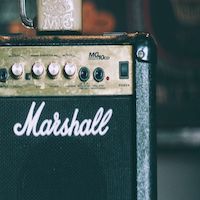THE THREE ULTIMATE PRACTICE TIPS

There are so many elements to address on the road to being considered a good musician. Let's focus on what is perhaps the most fundamental of all- practice. Let's face it- practicing is the first thing we begin to do when our musical odyssey begins. The following tips do not contain mantras that say "Thou shalt practice for 18 hours per day until thy fingers bleed' or that you must practice XYZ scales or arpeggios. Rather, it is a vessel which you can customize and fill with goodies that suit your lifestyle and situation. All of our lives are different and unique, therefore it is ludicrous to try to suggest that a single set of highly specified 'must do's is suitable and practical for all. "It's all about harmony baby" THE THREE ULTIMATE PRACTICE TIPS? Tip 1. Know your outcomes. Every time you begin to practice you should know what it is that you are expecting to achieve from your practice time. Tip 2. Make effective use of your time. Everyone on planet Earth has 24 hours a day to do stuff. The time that you allocate to practicing should be used in the most efficient and effective way possible. Tip 3. Develop a routine. Contrary to popular belief a routine doesn't necessarily mean doing the same thing at the same time everyday. A routine has to be devised that can fit in with anything and everything else that you have to do in the course of a day. The definition of "routine': Noun: A sequence of actions regularly followed: "I settled down into a routine". Adjective: Performed as part of a regular procedure rather than for a special reason: "a routine annual drill". Be a problem-solver and try your best to figure out what it is that is causing you to falter. Is it because it hasn't been memorized? Are you rushing it? Maybe it's actually the preceding bar that is causing the difficulty! This type of phenomenon also has the somewhat nasty side-effect of introducing anxiety into your performance of that song as you know that 'X' section is coming up and your nerves and tension can increase during your approach to that part, which is not good. A quick fix to avoid this is: 1. Scan through the song before you start to learn it 2. Identify the section or bars that you think will give you the most trouble 3. Start learning those sections or bars first 4. When you are confident with that section or bar learn the preceding bar(s) and play through, then learn the section or bar(s) that follow it and put it all together. 5. Move on to the rest of the song Have you heard of the ratio called "The 80:20"? It works like this. For many songs (and many other aspect of life) you will spend 80% of your time just mastering a small section of it (20%). The figures are of course approximations, but you will find the proportions are close to accurate and fairly general. There will always be outliers like songs that don't cause you any trouble or songs that are a nightmare from beginning to end! A routine is not immutable. A routine must be adaptable, flexible and of course realistic; Quite often musicians planned to practice an hour a day but they just couldn't find an hour to sit down and practice. So break down your practice down into smaller segments e.g. 10 minutes in the morning before breakfast; 30 minutes during in the afternoon; and 20 minutes before the show. The key is that you must be flexible according to you own lifestyles. Most of us never thought of that approach because we are still carried over the principles that we learn in schools where most lessons are taught in hour long classes for practical reasons. 1. Develop a routine that fits in nicely with your life 2. Be flexible with it and revisit it if you are unable to follow it 3. Always look for options and avoid a regimented approach All the best with perfecting your practice! Written by Joshua Rogers





